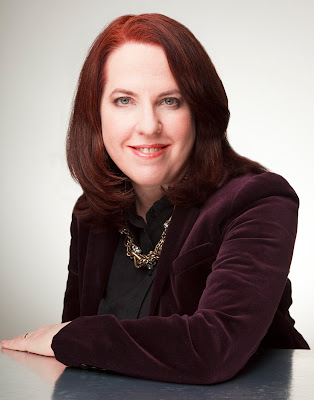Nancy Bilyeau
Born in Chicago and a graduate of the University of Michigan, Nancy Bilyeau moved to New York City to work in the magazine business as a writer and editor. After working for publications ranging from Rolling Stone to Good Housekeeping, she turned to fiction. She wrote the Joanna Stafford trilogy, a  trio of thrillers set in Henry VIII’s England, for Touchstone/Simon & Schuster. Her fourth novel is The Blue, an 18th-century thriller revolving around the art & porcelain world. Her latest novel, The Orchid Hour, returns to the early 20th century New York City of her novel Dreamland to once again tell a story of suspense revolving around a compelling heroine.
trio of thrillers set in Henry VIII’s England, for Touchstone/Simon & Schuster. Her fourth novel is The Blue, an 18th-century thriller revolving around the art & porcelain world. Her latest novel, The Orchid Hour, returns to the early 20th century New York City of her novel Dreamland to once again tell a story of suspense revolving around a compelling heroine.
My Q&A with Bilyeau:
How much work does your title do to take readers into the story?Visit Nancy Bilyeau's website.
‘The Orchid Hour’ is meant to intrigue and entice readers—how can an orchid have an hour?—while carrying various meanings for the story. My main character, Zia De Luca, learns in an early chapter that her gambler cousin, Salvatore, is a part owner of a new illegal nightclub in New York City and its name is The Orchid Hour. Slowly she discovers why it was named that and why the host of the speakeasy, a silent-film actor, would have chosen it. Orchids were fragile and seductive flowers in the 1920s. They were imported, as it wasn’t yet possible to grow them from seeds. They were bought, nurtured, and cherished by the wealthiest people in America. This club had orchid plants on display as a statement about its status and desired clientele. Speakeasys opened late at night, so you could say that this was their hour. But also, the most valued orchid in the club is a variety found in South America that emits its fragrance only during certain hours of the night.
What's in a name?
I wanted an unusual Sicilian name for my main character that carried a special meaning, even if it was never spelled out. I came upon “Audenzia,” which is the feminine version of “Audenzio” and means “one who dares or one is who is fearless.” Instantly I thought: “This is it.” She is strong and quite fearless. No one ever says that is what her name means in the novel. But I knew it. And for short, she’s called “Zia.”
How surprised would your teenage reader self be by your new novel?
Teenage Nancy would not be surprised that I wrote a novel. I had grandiose ambitions in high school! I intended to write novels and poetry and work on the staff of the Washington Post, exposing wrongdoing in order to change the world. But the New York City setting of this novel, The Orchid Hour, might have come as a shock. I grew up in Illinois and in Michigan, and in my teenage years, New York was a far-away, frightening place. The movies I saw in Michigan that were set in New York, like The Prince of the City, did not present it as a place where I would want to live. Of course, I did end up living in the city for more than twenty years.
Do you find it harder to write beginnings or endings? Which do you change more?
I find the beginning is key to any of the novels I’ve written. Sometimes it springs from me easily. For example, the first paragraph of my debut novel, The Crown, and the beginning of The Blue just wrote themselves. Sometimes there is a lot of revision, but I have the basic idea in my head, such as with Dreamland. But with both The Fugitive Colours and The Orchid Hour, I changed my mind on where to start a few times and overhauled thebeginning top to bottom. Maybe it’s because as I go along in my fiction career, I realize how important these beginnings are! It’s nothing to be taken lightly. Novel endings are much easier for me. They sometimes vary from what I had planned in my outline, but that’s a different matter.
Do you see much of yourself in your characters? Do they have any connection to your personality, or are they a world apart?
I don’t write autobiographical fiction. I may take elements of my personality and that of people I know to build characters, but my protagonists are fundamentally different than I am. Zia is a Sicilian American immigrant to New York who at the novel’s beginnings is loyal to family tradition, excellent at math, and highly organized. That’s not me.
What non-literary inspirations have influenced your writing?
I make use of art, photography, films, and music. There are a few standbys that I turn to in the middle of every novel or toward the end of the writing process, to help me reach an emotional state. I often watch the film The Red Shoes. With music, I turn to Beethoven’s Symphony No. 7 or Camille Saint-Saëns’ “Carnival of the Animals.” Film scores also inspire me, ranging from those for Barry Lyndon to Vertigo to The Ninth Gate.
My Book, The Movie: The Tapestry.
--Marshal Zeringue
